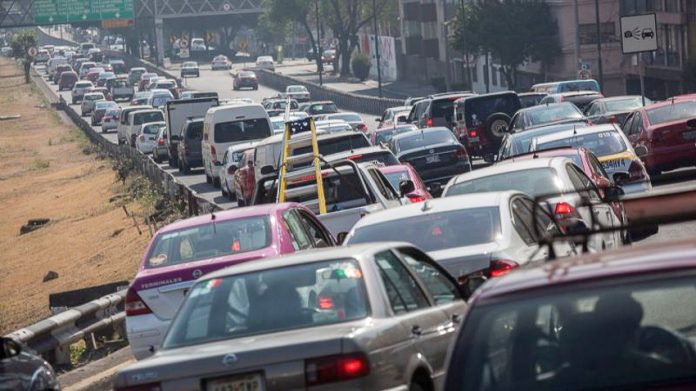Earlier this year, the Mexico City Congress approved a reform that changed the capital’s noise regulations and imposed new penalties for violating them.
Here’s what you need to know about the new noise regulations in Mexico’s largest – and loudest – city.
The reform:
On March 23, lawmakers voted unanimously to approve a reform to a section of the capital’s Environmental Law for the Protection of the Earth that deals with noise regulations. The reform slightly increases the permitted noise levels late at night and early in the morning but allows for much larger fines to be imposed on people who violate them.
The reform, put forward by a Morena party lawmaker, took effect in late April after its publication in the Mexico City government’s official gazette.
Permitted noise levels:
Between the hours of 6:00 a.m. and 10:00 p.m., noise of up to 68 decibels is permitted. Between 10:00 p.m. and 6:00 a.m., the permitted noise level falls to 65 decibels.
How loud is 65 decibels?
According to the news magazine Proceso, the sound of an air conditioning system can reach 65 decibels. It also said that a washing machine can reach 70 decibels and a vacuum cleaner can be as loud as 75.
Also well and truly capable of exceeding 65 decibels are alarm clocks, cars and motorcycles, lawnmowers, hair dryers, a music concert and airplanes.
The penalties:
People found guilty of violating the permitted levels will initially receive a warning from authorities. Repeat offenders face arrest for up to 36 hours – during which time they will be put before a judge – and fines ranging from 1,700 pesos (US $86) to 8.96 million pesos (US $453,000). Fines previously maxed out at just over 3,000 pesos.
Authorities can also temporarily close businesses, construction sites and other locations that have violated noise regulations, and confiscate their assets, such as sound systems or power tools.
Why the tougher penalties?
Teresa Ramos Arreola, head of the Congress’ environment committee, described noise as a public health problem that can cause sleep disorders, stress, anxiety, depression and neurosis, and exacerbate some cardiovascular conditions.
Excessive noise can also cause temporary and permanent hearing loss, headaches, muscle tension and a range of other health conditions. According to the World Health Organization, people should not be exposed to noise levels above 60 decibels without protection for their ears.
There have long been complaints of excessive noise in Mexico City and calls for the introduction of harsher penalties for the people and establishments that create it. Complaints are commonly made by residents of areas of the city with large numbers of restaurants and entertainment venues, such as the neighborhoods of Roma and Condesa and the capital’s historic center.
Noise generated by public works, aircraft, traffic and street vendors is also frequently complained about by residents of Mexico City.
Who could face the penalties?
The managers/owners of construction sites, workshops, industrial facilities such as factories and entertainment venues are among the people most likely to be sanctioned for violating noise regulations. However, the penalties apply to any citizen violating noise restrictions in the capital.
For example, public transit drivers at the wheel of a bus or taxi and people in private cars could be detained and/or fined if their vehicles or sound systems exceed permitted noise levels.
How can I make a noise complaint?
Mexico City’s Environment and Zoning Prosecutor’s Office is responsible for defending the right of citizens to enjoy an environment free of excessive noise. It can be contacted on the extensions 15410, 15420, 15430, 15450, 15440 and 15212 following the phone number 526 507 80.
Complaints can also be filed online on the prosecutor’s website. Click the “ruido” (noise) icon to begin.
